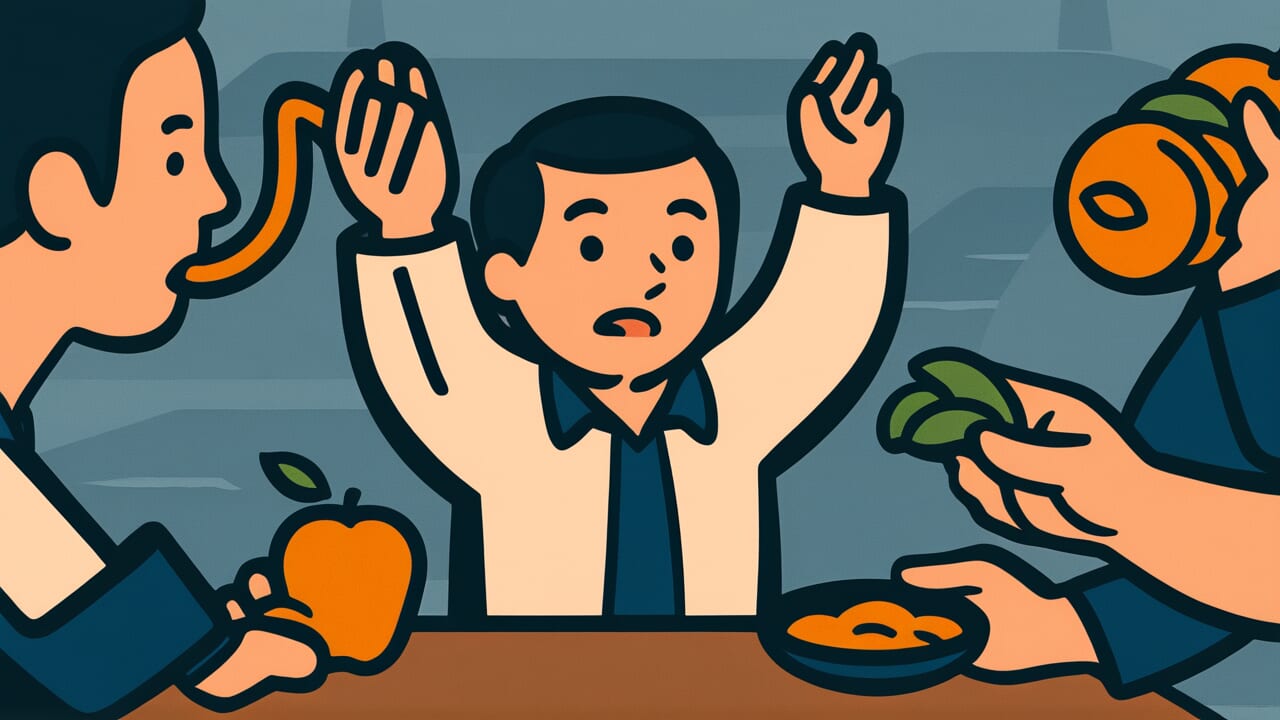How to Read “Better to face three famines than one war”
Sando no kiga ni au tomo ichido no ikusa ni au na
Meaning of “Better to face three famines than one war”
This proverb teaches that war is far more terrifying than famine and must be avoided at all costs. It means that suffering through three famines is nothing compared to being caught in even one war.
Famine is certainly a serious threat to life. But people can still endure it and have a chance to survive. War is different.
Getting caught in war just once can mean losing your life, your family, and everything you have. The risk is extremely high.
This proverb contrasts the value of peace with the horror of war. It carries a strong warning: no matter how poor your life becomes, you must avoid war at all costs.
Even today, this message hasn’t lost its weight. When we think about the destruction and loss that conflict and war bring, these words remain deeply relevant.
Origin and Etymology
Several theories exist about the exact origin of this proverb. However, no definitive written record has been identified.
Still, we can understand how it came to be by looking at its structure and content.
The contrast between “three times” and “one time” is striking. This comparison isn’t really about numbers. It emphasizes the difference in the quality of horror between the two experiences.
Famine is painful, but you might survive it. War, however, can kill you the very first time you encounter it. This recognition is deeply embedded in the saying.
Looking back at Japanese history, people experienced both famine and war. During the Warring States period and the Edo period famines, they faced both threats constantly.
Farmers especially lived in fear of both starvation from crop failures and getting caught in battles between feudal lords.
Through these experiences, people learned a harsh truth. You might endure famine several times, but war could take everything away in one stroke. This proverb likely emerged from that painful wisdom.
The expression strongly reflects a philosophy that values peace. It carries the desperate wish of our ancestors: no matter how hard life gets, avoid war above all else.
Usage Examples
- When I study history, I deeply feel the weight of the ancestors’ words: “Better to face three famines than one war”
- No matter how tough the economy gets, we should prioritize peaceful diplomacy with the spirit of “Better to face three famines than one war”
Universal Wisdom
This proverb has been passed down because it contains a deep truth learned from human experience. That truth is this: suffering comes in different qualities.
The suffering of famine is truly unbearable. But it holds the possibility of recovery over time.
People can wait for the next harvest even when hungry. They can help each other and somehow survive. There is hope there. There is a future.
War’s destruction is fundamentally different in nature. War takes everything away in an instant.
It destroys not just lives, but accumulated culture, human bonds, and hope for the future. Nothing is spared.
Most terrifying of all, war destroys people’s hearts and minds.
Our ancestors understood this difference in their bones. No matter how much they suffered from hunger, they knew that ordinary days spent living with family were treasures beyond price.
War was the demon that could steal that ordinary life in a single moment.
This proverb contains a universal question: what should humans truly value? Not material wealth, but the preciousness of peaceful daily life.
Perhaps that is humanity’s true wish, unchanging across all ages.
When AI Hears This
Comparing famine and war through thermodynamics reveals a striking difference. Famine is a “low energy state,” but the system itself isn’t broken.
In other words, if you input energy in the form of food, you can return to the original state. It’s a reversible process.
It’s like water evaporating from a cup. Pour more water in, and it’s back to normal. Same principle.
War is completely different. Buildings get destroyed, people die, trust collapses. This is what thermodynamics calls a rapid increase in entropy.
It’s a “one-way trip from order to chaos.” A broken cup glued back together never regains its original strength.
War is the same. No matter how much you invest in reconstruction, lost lives, culture, and social trust can never be fully restored.
Even more important is the speed of entropy increase. Famine progresses gradually. If you get food along the way, you can still recover.
But war increases entropy explosively. A single bomb destroys decades worth of order in seconds.
This “speed of irreversibility” is exactly why one war is more terrifying than three famines.
Physical laws are merciless. Reducing entropy once it has increased requires enormous energy and time.
This proverb intuitively understood that human society also exists under thermodynamic control.
Lessons for Today
This proverb teaches us the wisdom to identify what we truly must avoid.
In modern society, we face various difficulties. Economic hardship, relationship stress, career setbacks. All are painful and sometimes feel unbearable.
But this proverb asks us: is that difficulty truly irreversible?
Most difficulties can be recovered from with time. You can learn from failure, repair relationships, and stand up again.
However, some choices truly are irreversible. Completely destroying relationships in anger. Starting a cycle of revenge. Permanently closing off the possibility of dialogue.
These are equivalent to “one war.”
If you’re facing difficulty right now, stop and think. Is this choice a recoverable “famine,” or an irreversible “war”?
Even when it’s painful, leave room for dialogue. Keep seeking peaceful solutions.
That patience is the wisest choice in the long run.



Comments